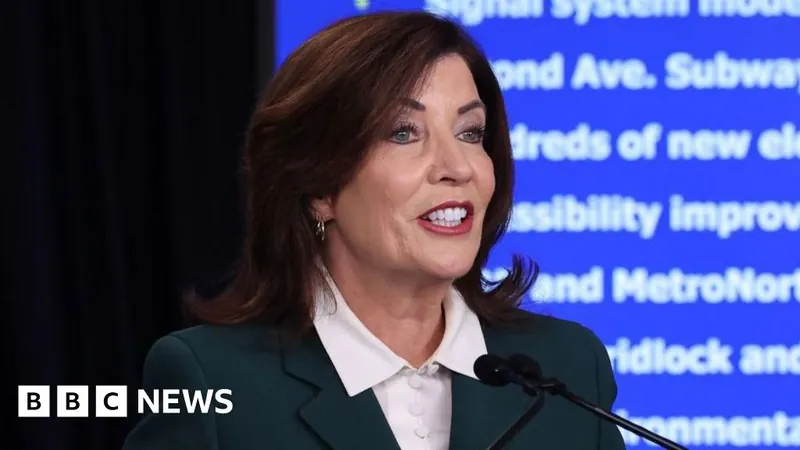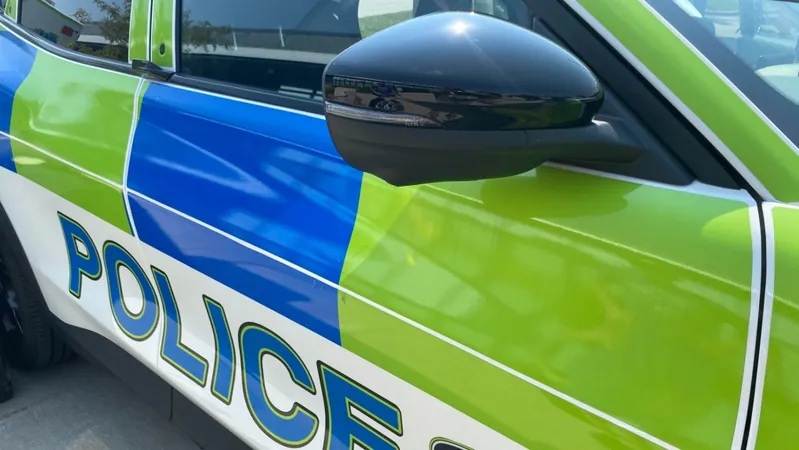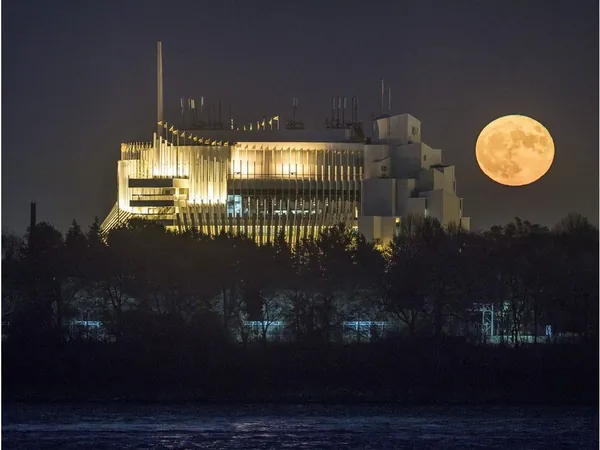
New York Set to Pioneer Congestion Charging in the US
2024-11-15
Author: Emily
Introduction
In a groundbreaking move, New York City is on the verge of becoming the first metropolis in the United States to implement a congestion charge, a strategic effort aimed at alleviating traffic congestion, reducing air pollution, and ultimately enhancing public transportation for millions of residents.
Announcement and Revised Plan
Governor Kathy Hochul officially announced that the congestion pricing initiative will take effect on January 5, following a pause in June due to significant pushback from commuters and business owners. The newly revised plan features lower fees than the original proposal, making the initiative somewhat more palatable to opponents.
Details of the Congestion Charge
The congestion charge will apply to vehicles traveling below 60th Street in Manhattan, a crucial core of New York City. The hope is that this program will not only help streamline the notoriously congested roads of the city but also generate much-needed funding for the Metropolitan Transportation Authority (MTA), which oversees the city’s buses, subways, and surrounding transit systems.
Revised Pricing Scheme
Under the revised pricing scheme, cars will incur a daytime toll of $9, reduced from the initial $15 proposed. Small trucks and non-commuter buses are subject to a fee of $14.40, while larger trucks and tourist buses will be charged $21.60 to enter the congested zone.
Support from Public Transit Advocates
Public transit advocacy group Riders Alliance has expressed their support for Hochul's revised plan, stating, "We'll continue to fight together to make sure the plan is implemented and funds the projects riders really need."
Opposition and Criticism
Despite these positive developments, the initiative faces stern opposition from various quarters, including incoming President Donald Trump. In an interview, Trump articulated his disapproval of the congestion charge, framing it as an excessive tax. Local Republican leaders, including Congressman Mike Lawler, are urging Trump to take action against what they term an "absurd congestion pricing cash grab."
Governor Hochul's Commitment
In a defiant stance, Governor Hochul assured that the congestion charge would proceed irrespective of the political landscape in Washington. "I am not driven by the calendar of when people are elected or not elected,” she emphasized, showcasing her commitment to the plan.
Conclusion and Implications
As the clock winds down to the program's launch, critics are watching closely, noting the timing of its revival coincided with post-election political dynamics. Advocates argue that it represents a step toward a more sustainable urban environment, while opponents see it as an unwelcome burden on commuters. As New York prepares to lead the way in this ambitious transportation initiative, the eyes of other American cities are certainly taking note—will congestion charging become the new standard in urban mobility, or will political pressures bring it to a halt?









 Brasil (PT)
Brasil (PT)
 Canada (EN)
Canada (EN)
 Chile (ES)
Chile (ES)
 España (ES)
España (ES)
 France (FR)
France (FR)
 Hong Kong (EN)
Hong Kong (EN)
 Italia (IT)
Italia (IT)
 日本 (JA)
日本 (JA)
 Magyarország (HU)
Magyarország (HU)
 Norge (NO)
Norge (NO)
 Polska (PL)
Polska (PL)
 Schweiz (DE)
Schweiz (DE)
 Singapore (EN)
Singapore (EN)
 Sverige (SV)
Sverige (SV)
 Suomi (FI)
Suomi (FI)
 Türkiye (TR)
Türkiye (TR)